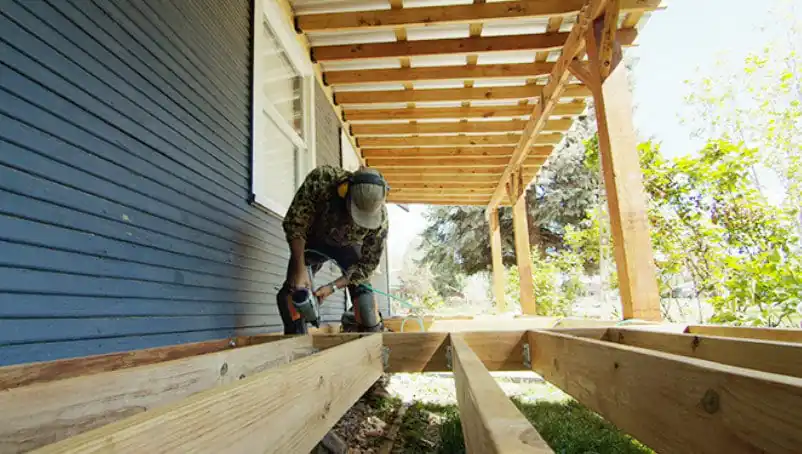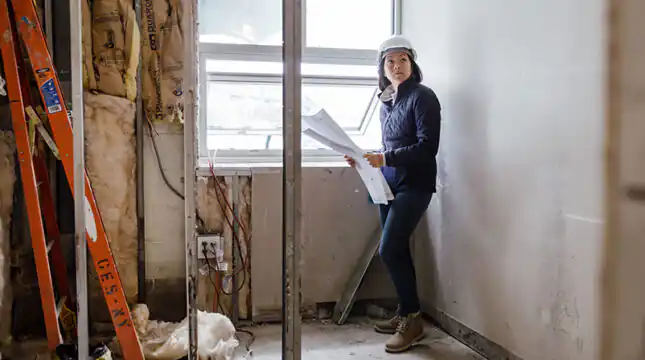Insurance requirements for Washington general contractors
To operate as a contractor, you’ll need a few types of Washington business insurance to stay compliant and help protect your work. Here’s what’s typically required — and what else you might want to consider.
General Liability insurance
General liability insurance is required for Washington contractors. It can help protect your business if someone other than you or an employee is injured, or if property is damaged because of your work.
You must be covered for:
- At least $200,000 in public liability and $50,000 in property damage
- OR a $250,000 combined single limit
Applicants must submit proof of general liability insurance meeting those thresholds and have L&I listed as a certificate holder.
Learn more about general liability for contractors.
Workers’ Compensation insurance
If you hire employees or subcontractors, you’re also required to have workers’ compensation. This coverage can help pay for medical expenses and lost wages if you or an employee gets hurt on the job.
Because Washington is a monopolistic state, workers’ comp must be purchased through L&I. You can also add employer’s liability coverage separately to help cover potential lawsuits related to workplace injuries.
Learn more about Workers’ Comp for construction workers.
Commercial Auto insurance
Driving a vehicle without liability insurance is unlawful in Washington. Your insurance must have the minimum coverages of:
- $25,000 of bodily injury of 1 person in any 1 accident.
- $50,000 of bodily injury per accident
- $10,000 of injury for destruction of property
Any vehicles owned or used by your contracting business should be covered with commercial auto insurance. If you or your employees are involved in an accident, it can provide coverage for emergency care, medical bills, property damage, vehicle damage and legal fees.
Commercial property insurance
If you own or rent a workshop, storage yard or office space, commercial property insurance can help protect your business assets. This coverage can help pay to repair or replace your building, tools, inventory and equipment if they’re damaged by events like fire, theft or vandalism.
Tools and equipment (T&E) insurance
Tools and equipment insurance helps pay to repair or replace your gear if it’s lost, stolen or damaged — whether on a job site, in your truck or in storage. It’s an affordable add-on to your general liability policy that helps keep your projects on track.
Washington surety bond requirements
A contractor surety bond is an agreement between three parties. You, the contractor, pay a fee to have a surety bond provider guarantee your contract with your customer. A bond is like an added level of insurance on your coverage plan. It guarantees a payment amount if certain conditions are (or aren’t) met in a contract you’ve signed.
Washington contractors must have surety bonds to operate. The amount depends on the type of license you have:
- General Contractors: $30,000
- Specialty Contractors: $15,000 (one specialty trade only)
Local requirements contractor requirements
While contractor registration in Washington is handled at the state level, some cities have their own additional requirements. If you plan to work in Seattle or Spokane, here’s what you need to know before taking on local projects.
Seattle
Contractors working in Seattle must first register with the L&I department, but the city has a few extra steps. To do business within city limits, you’ll need:
Seattle contractors are also responsible for following local building codes, permitting rules and inspections managed by SDCI. Before starting any project, it’s best to verify whether your work requires a specific city permit or inspection.
Spokane
Contractors must be registered with L&I. To do business in Spokane, add the Spokane city endorsement to your Washington business license through the state’s business licensing service. This endorsement functions as your Spokane business license and authorizes you to operate within city limits.
Washington contractor license renewal
Your Washington contractor registration must be renewed every two years through the Department of Labor & Industries.
To renew, submit your renewal form (online, by mail or in person), pay the $139.10 fee, and make sure your bond and general liability insurance are active and current. If you have employees, your workers’ compensation account with L&I must also be in good standing.
Missing the renewal deadline can result in late fees or suspension of your registration.
Washington contractor license reciprocity
Washington State does not have reciprocity agreements for general contractor registration with other states. This means contractors licensed elsewhere must complete the full Washington registration process before taking on projects in the state.







